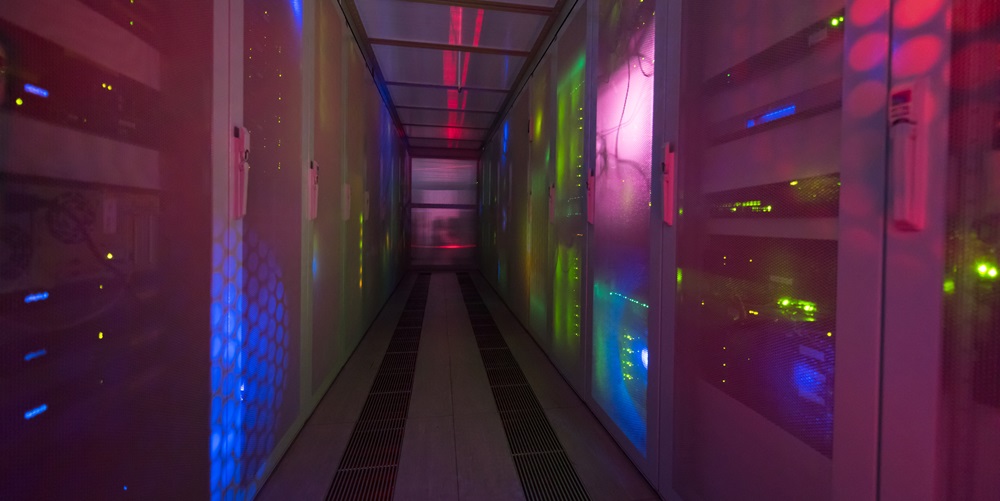As artificial intelligence (AI) becomes increasingly prevalent across different sectors, the surge in energy consumption at data centers is becoming a pressing issue for the industry. This topic was the focal point of a recent webinar in which experts like Christopher McLean from the Critical Facility Group and John Berenbrok from Starline highlighted the considerable energy demands imposed by AI applications. Their discussion shed light on the challenges data centers face as they struggle to manage the growing power requirements. AI’s computational demands not only impact the efficiency and operations of data centers but also pose broader concerns about sustainability and the environmental impact of rising energy use. As the tech sector continues to innovate, finding solutions to balance AI’s benefits with its energy footprint is becoming an increasingly critical endeavor, emphasizing the need for industry-wide efforts to address power efficiency in the era of AI expansion.
Data Center Power Design
The Intensity of AI’s Energy Consumption
Integrating AI into data center operations has led to a significant increase in power consumption, which is becoming a pivotal concern in terms of energy management. As the AI industry is projected to reach a market size of $800 billion by 2025, there is a pressing necessity for innovation in data center energy systems. Traditional cooling and power supply solutions are rapidly becoming obsolete in the face of evolving AI demands, requiring power networks to be not only strong but also intelligent and adaptive. McLean highlights the urgency, emphasizing that the power networks of tomorrow need to keep pace with the swift advancements in AI, meaning they must be able to adjust dynamically to fluctuating power needs. This shift toward smarter energy management in data centers is critical to accommodate the power needs of advanced AI technologies.
Embracing Adaptive Design Strategies
As AI continues to evolve, leaders in the industry stress the necessity for data centers to integrate adaptability within their design. The aim is to create flexible infrastructures that not only draw on renewable energy resources but also prioritize energy efficiency across all operations. Berenbrok emphasizes the importance of building an ecosystem centered around energy conservation. To stay current, data center designs must consider the increased energy needs and density that accompany AI advancements. This includes the implementation of advanced cooling systems, such as liquid or perimeter cooling, which are more effective than traditional methods. By doing so, data centers can maintain their relevance and operate sustainably, even as technological demands escalate. These measures are crucial for ensuring that data centers remain capable of supporting the rapid pace and scale at which artificial intelligence is growing.
Regulatory and Environmental Concerns
Anticipating Stringent Regulations
The growing influence of AI on energy consumption extends into environmental sustainability, a sector drawing increased attention. Europe is at the forefront, establishing eco-friendly benchmarks with initiatives like the European Code of Conduct for Data Centers. It’s likely the U.S. will adopt similar sustainability protocols amid heightened ecological scrutiny. According to McLean, companies must adopt green practices not just to comply, but to gain a strategic advantage. As governments are poised to introduce stringent guidelines, proactive environmental stewardship is becoming a critical business strategy. It’s clear that sustainable operation is transitioning from a voluntary choice to an essential aspect of corporate planning, necessitating that businesses anticipate and align with these imminent environmental regulations. This preemptive approach ensures competitiveness and regulatory alignment in a future where green policies will be the norm.
Focusing on Ecological Impact
The expansion of power in data centers for AI advancements carries a significant environmental impact, highlighting the importance of ’embodied carbon’ awareness in these facilities. It’s crucial for the industry to track and curb its carbon footprint, transcending mere compliance to embrace environmental stewardship. John Berenbrok, an industry expert, underscores our dual role as sector professionals and global citizens, responsible for mitigating the ecological effects of AI progress. Transparency and responsibility are increasingly demanded as the data center sector seeks to balance cutting-edge technologies with sustainable practices and prepare for future regulatory expectations. An integrated approach that harmonizes innovation, smart design, and ecological care is pivotal for data centers to sustain AI’s growing needs and ensure industry accountability.

